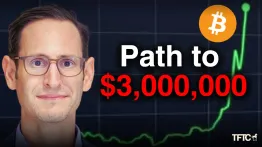
Russell Napier discusses on the Forward Guidance podcast how changes in China and Japan's monetary policies are signaling a major shift in the global economic landscape.

The latest episode of Forward Guidance podcast featured a deep dive into the potential seismic shifts in the global monetary system, with a focus on Asia. Russell Napier, of Orlok Advisors and author of the Solid Ground publication, provided a historical perspective on identifying changes in monetary policy and posited that we are on the cusp of a significant transition, particularly emanating from China and Japan.
Napier argued that the current monetary structure is producing undesirable economic outcomes, forcing politicians to rethink and restructure monetary policy fundamentally. The discussion encompassed the end of the gold standard, the Bretton Woods agreement, and the assertion that a new system was created in 1994, emphasizing that such shifts are rare but have long-lasting impacts.
The conversation transitioned to China's 1994 devaluation of the yuan and its long-term effects on the global economy. Napier suggested that the yuan is no longer artificially cheap and that China's current account is showing signs of weakness, potentially indicating an overvalued currency and broader structural issues, including geopolitical risks and domestic economic deterioration.
The podcast also explored Japan's monetary policy, with Napier predicting a departure from yield curve control and potential imposition of financial repression, forcing Japanese institutions to buy government bonds. Such a move would signal a departure from market-based systems, creating profound implications for investors worldwide.
The overarching message of the Forward Guidance episode with Russell Napier is that the global economy is approaching a pivotal moment in monetary policy, largely influenced by developments in Asia. The insights garnered from the historical patterns and current economic indicators suggest that change is not only imminent but also necessary, given the political and economic pressures. Napier's nuanced perspectives on the implications of a shifting monetary regime for governments, investors, and the broader financial landscape highlight the complexity and significance of the impending transitions.







